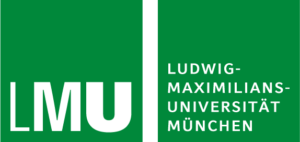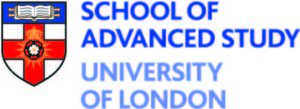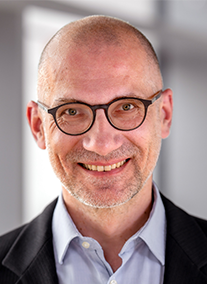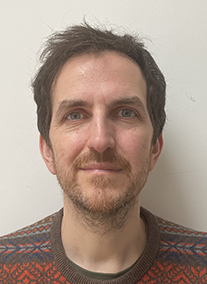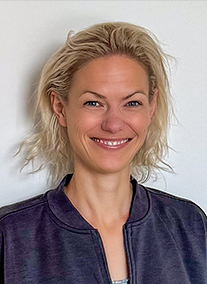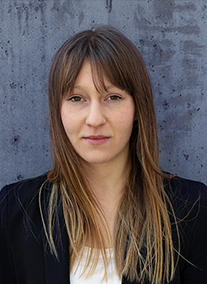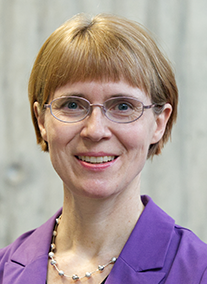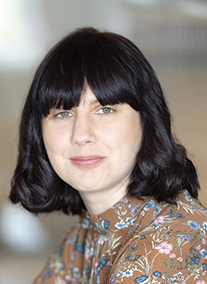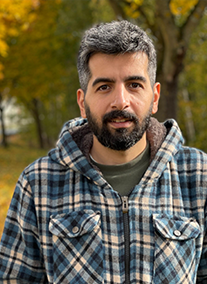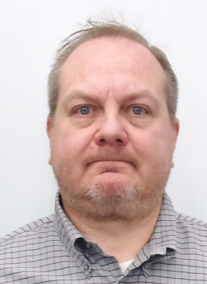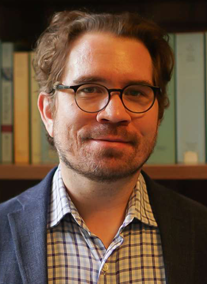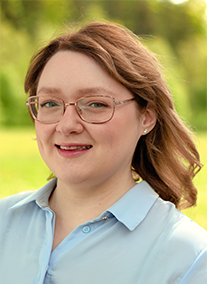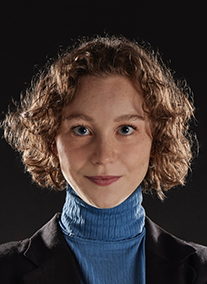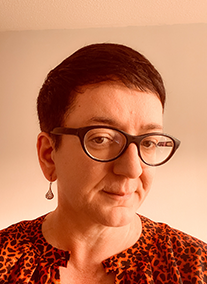People
Project StoryMachine, funded by the Arts and Humanities Research Council and the Deutsche Forschungsgemeinschaft, is a collaboration between Hof University of Applied Sciences, Ludwig-Maximilians-Universität München, the University of Hertfordshire, the University of London, the University of Regensburg and the University of the Arts London. It aims to preserve, explore and provide greater access to folklore traditions in Germany and the UK, through the development of a digital infrastructure called StoryMachine.
Claus Atzenbeck is Professor for Visual Analytics at Hof University, Germany. His research centers on intelligent, knowledge-based user interfaces that allow seamless interactions between humans and intelligent machines. His work is particularly focused on the field of hypertext, with a specific interest in recommender-based spatial hypertext systems. In the context of his research, Dr. Atzenbeck contributes to the computer science aspects of the Project StoryMachine, where he serves as a Co-PI.
Sam Brooker is a Course Leader and Senior Lecturer at London College of Communication. He specialises in digital communication and in his research explores the relationship between digital technologies and theories of literature and culture.
Sarah Diefenbach is professor for economic psychology and human-computer interaction at the Ludwig-Maximilians Universität München (Munich, Germany) with a focus on the field of interactive technology. Her team explores design factors and relevant psychological mechanisms of technologies in different fields (e.g., social robots, technologies for behavior change, sustainability). Sarah Diefenbach received her doctorate in Psychology with distinction from the University of Koblenz-Landau. Since 2007 she is engaged in research on user experience and consumer experience in the field of interactive products. Current research topics focus on the negative side effects of technology use on happiness and wellbeing („digital depression“), the psychological effects of social media (e.g., selfie-paradox) as well as interaction design from a psychological perspective (e.g., aesthetics of interaction, psychological needs approach). Sarah Diefenbach developed several methods for user experience design and evaluation (e.g., interaction vocabulary) which are widely applied in research and practice. Her research is internationally published and recognized, including more than 100 articles in books, journals, and conference proceedings. Examples of current externally funded projects are “Transform – Transparency in smart spaces” (DFG), “WiSE – Activating Women in Software Engineering” (BMBF), “Moven – Motivational and behavioural sustainability technologies” (BMBF), and „VEREINT – Feeling connected through interactive technologies” (BMBF).
Lisa is a member of the Visual Analytics Research Group at the Institute for Information Systems at Hof University, Germany. Her interests include hypertext, intelligent systems, and human-machine collaboration, with an emphasis on enhancing human capabilities over automation.
Astrid is Professor of the Dynamics of Virtual Communication Spaces in the Department of Interdisciplinary and Multiscalar Area Studies at the University of Regensburg. With an original background in German and Anglophone languages and literatures, her work sits primarily in Digital Culture and Communication, Comparative Literature, Narrative Media and Game Studies. She has published and edited over a dozen monographs and special editions on electronic literature, hypertext and digital-born fiction; discourses of games and play; literary and transformative games, virtual worlds and digital culture, and intersections between narrative, games and Digital Humanities. She is a Director of the Electronic Literature Organization, Principal Editor of the Bloomsbury “Electronic Literature” book series and Director of the Digital Area Studies Lab (DAS|LAB) at URegensburg. More recently, her interests have shifted into aspects of gender, the body, digital health and folklore studies.
Amongst her externally funded projects are “FEMTRACK: Menstruation, Tracking Apps, Bodies & Identities (with Sarah Riley et al; Marsden Fund New Zealand); “Writing New Bodies: Critical Co-Design for 21st Century Bibliotherapy” (with Carla Rice et al.; Social Sciences and Humanities Research Council of Canada); “Computer Gaming Across Cultures” (with Saugata Bhaduri et al., British Council); “Reading Digital Fiction” (with Alice Bell, AHRC), and “What’s Hard in German” (with Anke Lüdeling, AHRC/DFG).
Dr. Ceri Houlbrook, Senior Lecturer in Folklore and History, is the Programme Leader for the MA Folklore Studies at the University of Hertfordshire. Her primary interests are ritual practices, popular beliefs, and how they adapt to contemporary society. She has written three monographs (The Magic of Coin-Trees, Unlocking the Love-Lock, and Ritual ‚Litter‘ Redressed), co-written two with Owen Davies (Building Magic and the upcoming British Folklore: A journey through the past and present), and co-edited several books and journal special issues. In addition to her scholarly work, she writes folklore-inspired fiction.
Saeid Khoobdel is a member of the Visual Analytics Research Group at the Institute for Information Systems at Hof University, Germany. His interests include deep learning, computer vision, natural language processing, and hypertext, with a focus on interactive AI systems.
Peter Nuernberg obtained his PhD from Texas A&M University while working at the Hypertext Research Laboratory. He worked at Aarhus University and Aalborg University in Denmark and held guest positions at TU Graz in Austria and University of Houston-Clear Lake in the US. His research has focused on hypertext, digital libraries, and human-computer interaction. He has worked at a number of tech startups in Texas, focusing on AI and ML.
Christopher is Senior Lecturer in Digital Approaches to Literature at the School of Advanced Study, University of London. He works within the Institute of English and the Digital Humanities Research Hub at SAS, focusing on book history, textual scholarship and various computational approaches to texts and criticism. He is also the co-director of the Herman Melville Electronic Library. In 2023, he received a joint fellowship from the National Endowment for the Humanities and the Mellon Foundation to complete a digital scholarly edition of the 1834 anti-slavery literature anthology The Bow in the Cloud.
Sabine Slowik is a Research Assistant at the DIMAS (Department of Interdisciplinary and Multiscalar Area Studies) at the University of Regensburg. She holds a Bachelor’s degree in Japanese Studies and a Master’s degree in Comparative European Ethnology. Her research, based on ethnographic and qualitative methods, has explored the representation of history in digital games and urban identity constructions through intangible cultural heritage.
Marie Veihelmann, M.Sc., is a research associate and PhD candidate at the Chair of Work and Organizational Psychology at Ludwig-Maximilians-Universität München since 2025. She previously completed a Master’s degree in Media and Instructional Psychology at Technische Universität Chemnitz and a Bachelor’s degree in Psychology at Otto-Friedrich-Universität Bamberg. Her research focuses on knowledge-management-systems and user experience, and software interfaces, as well as web accessibility. In addition to her academic work, Marie Veihelmann is an independent consultant for digital accessibility. She is also involved in teaching, contributing to the course Research Specialization in Different Areas of Psychology, where she shares her expertise with students.
Jane is Professor of Digital Humanities and Director of the Digital Humanities Research Hub, School of Advanced Study, University of London. She has led or co-directed a range of digital projects, including the UK-Ireland Digital Humanities Association: a Network for Research Capacity Enhancement; CLEOPATRA: Cross-Lingual Event-Centric Open Analytics Research Academy; WARCnet; Big UK Domain Data for the Arts and Humanities; Digging into Linked Parliamentary Metadata; and Traces through Time: Prosopography in Practice across Big Data.
Jane is Chair of the Digital Preservation Coalition, and a member of RESAW (Research Infrastructure for the Study of the Archived Web), the Advisory Board of the European Holocaust Research Infrastructure, the Editorial Board of the History of Parliament, and the UK UNESCO Memory of the World Committee. Her research interests include digital history, born-digital archives (particularly the archived web), digital cultural heritage, and open access publishing. She has published most recently on Non-Print Legal Deposit and web archives, born-digital archives and the problem of search, and the archiving and analysis of national web domains.
Funded by:


Partners:

